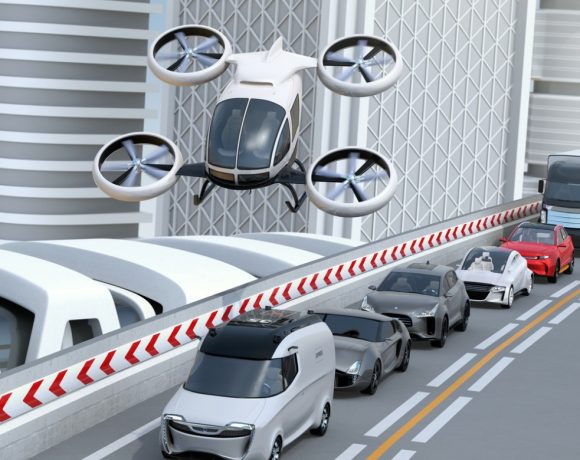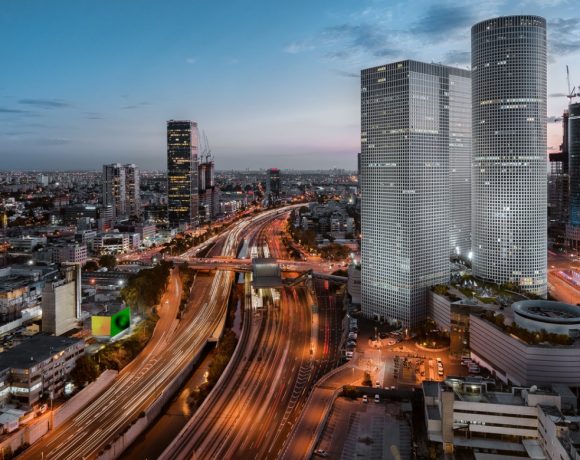- On March 2019, Seoul’s Mayor Park Won-Soon announced the project plan to invest 1.4 trillion won (approx. 1.2 billion USD) for “Smart City, Seoul”.
- Seoul shows a high rate of Information communication infrastructure. In Seoul, 3,958 public areas provide public WiFi with 11,666 Access Point as of 2018. For the city bus, used by an average of 1.18 million people daily, WiFi was installed on 270 buses last year and 7,405 buses, an entire buses of the city, will provide WiFi service by next year.
- TOPIS, Seoul Transport Operation & Information Service, is a leading hub of the entire public transportation system operated within the city. TOPIS developed a cutting-edge IT-based transportation card, which is used 85 million times per day. The data collected from the card is analysed and processed for calculating fares and transactions, tracking the number of passengers and narrowing down the exact location of a certain passenger in emergency.
Seoul Metropolitan Government (SMG) commemorates its 20 year anniversary of the establishment of the Information System Bureau, a section built under the objective of implementing ICT-based management policies. After that, Seoul was nominated 7 times in a row as the world’s best e-government city and is now trying to push itself as a leading smart city under the city government’s project “Smart City, Seoul”.
SMG aims to implement this project under main theme of “big data” It brings its accumulated administrative resources and ICT technologies together with key emerging technologies of the fourth industrial revolution including Internet of Things (IoT) and blockchain. On March 2019, Mayor Park Won-Soon announced the project plan to invest 1.4 trillion won (approx. 1.2 billion USD) for “Smart City, Seoul”. The project will be executed under six following categories: (1) Administrative Services, (2) Transportation, (3) Security, (4) Environment, (5) Welfare, and (6) Economy. SMG’s achievement and ongoing projects of Administrative Services, Welfare and Transportation will be covered in this article.
Smart Administrative Services based on IoT Sensors and AI Technologies
Smart administrative services that meet citizen’s demands contributed already to Seoul’s reputation as the best e-government city. For instance, mVoting is a concrete reality and Artificial Intelligence technology (AI) is also deeply engaged in analysing the Big Data collected for public affairs.
Under the project “Smart City, Seoul”, SMG will not only limit its smart technology to what’s already established, but bring it to the next level with the final goal of expanding its administrative services for making up-to-date, optimal policies. Around 50,000 IoT sensors will be installed by 2022 for analysing numerical factors of city government, including fine dust, noise, night light intensity, population and traffic movement. Additionally, to wisely store, analyse and use the newly collected and currently possessed administrative data, Integrated Public Big Data Storage will be established.
SMG also plans to establish a platform for joint data share between private companies and public organisations, called Public-Private Big Data Platform. Big Data for services, including real estate market, finance, logistics, telecommunication, will be openly shared on this platform. The service is expected to maximize the value of big data in Korea as well as to promote the power of big data ecosystem of Korea. For stable establishment of the platform, trial projects with 8 private sectors were announced at the beginning of 2019 and now on-going.
Smart Welfare Everywhere, for Everyone
With its smart technology, Seoul supports everyone, everywhere. The smart welfare provides intelligent services which include but are not limited to public WiFi service, surveillance cameras for security and monitoring system for elderlies.
Seoul shows a high rate of Information communication infrastructure. In Seoul, 3,958 public areas provide public WiFi with 11,666 Access Point as of 2018. For the city bus, used by an average of 1.18 million people daily, WiFi was installed on 270 buses last year and 7,405 buses, an entire buses of the city, will provide WiFi service by next year.
The city also puts great effort in increasing security using smart technology. As of 2018, 80,503 units of surveillance cameras (CCTVs)have been installed within Seoul, and a total of 17,820 units of smart CCTVs will be further introduced by 2021. Intelligent CCTVs will be co-controlled by 25 autonomous district offices, in corporation with SMG, police and fire department. In case of emergency, CCTV information will be directly shared with offices and entities needed for prompt actions.
In addition, for the elderly who live alone, real-time monitoring system will be developed with blockchain technology. The power usage or measures such as movements, humidity and temperature will be tracked and an alarm will be sent immediately to social care workers for any abnormal signs. If agreed, city-owned hospitals and/or health centers which share the medical records of the elderly will be jointly informed whenever necessary.
TOPIS leading Smart Transportation in Seoul
TOPIS, Seoul Transport Operation & Information Service, is a leading hub of the entire public transportation system operated within the city. In 2015, more than 65% of the modes of transportation was public transportation, while private car and taxi together was less than 30%. TOPIS has worked on increasing the usage of public transportation by providing services which make it more convenient.
One of the smart services for public transportation is Bus Information Terminal (BIT) based on the data collected from GPS-equipped buses and transportation cards. BITs are installed at most of the stops in the city, providing real-time information about every bus for the particular stop at a glance. Other than estimation of arrival time, now available in many developed cities, the information include bus type (low-floor bus for wheelchairs and strollers), seat availability and mark of the last bus of the day. Every information is also available via smartphone map applications since the data is freely shared online.
TOPIS also developed a cutting-edge IT-based transportation card, which is used 85 million times per day. Nowadays, its usage is higher than 98% for buses and 100% for subway. By tapping the card to readers while getting on and off public transportation, information is sent and accumulated as big data in TOPIS integrated situation room. The data is then analysed and processed for calculating fares and transactions, tracking the number of passengers and narrowing down the exact location of a certain passenger in emergency.
Another way of collecting big data is CCTV. With CCTVs installed on every street, vehicles driving or parking illegally are noticed and issued through automated processes for fines. Also traffic information is monitored and applied real-time to a map on TOPIS website and smartphone applications, navigations and websites which receive the information. In case of accidents or constructions, detour routes are suggested and accident notices are sent immediately to connected police and hospitals.
Seoul has successfully maintained its reputation as the best e-government city, and is preparing itself to make a new leap forward. Great collaboration with smart technology and governance is to be in the limelight in the near future.






NO COMMENT